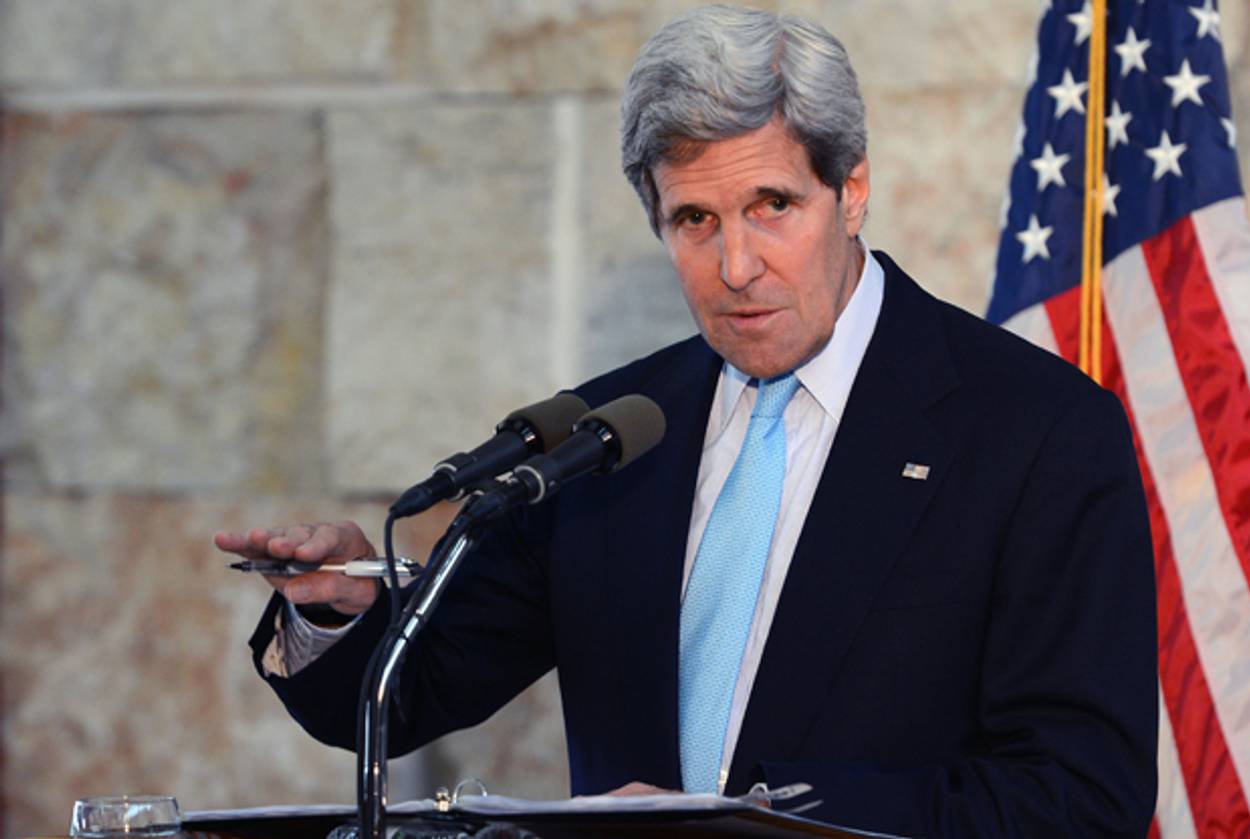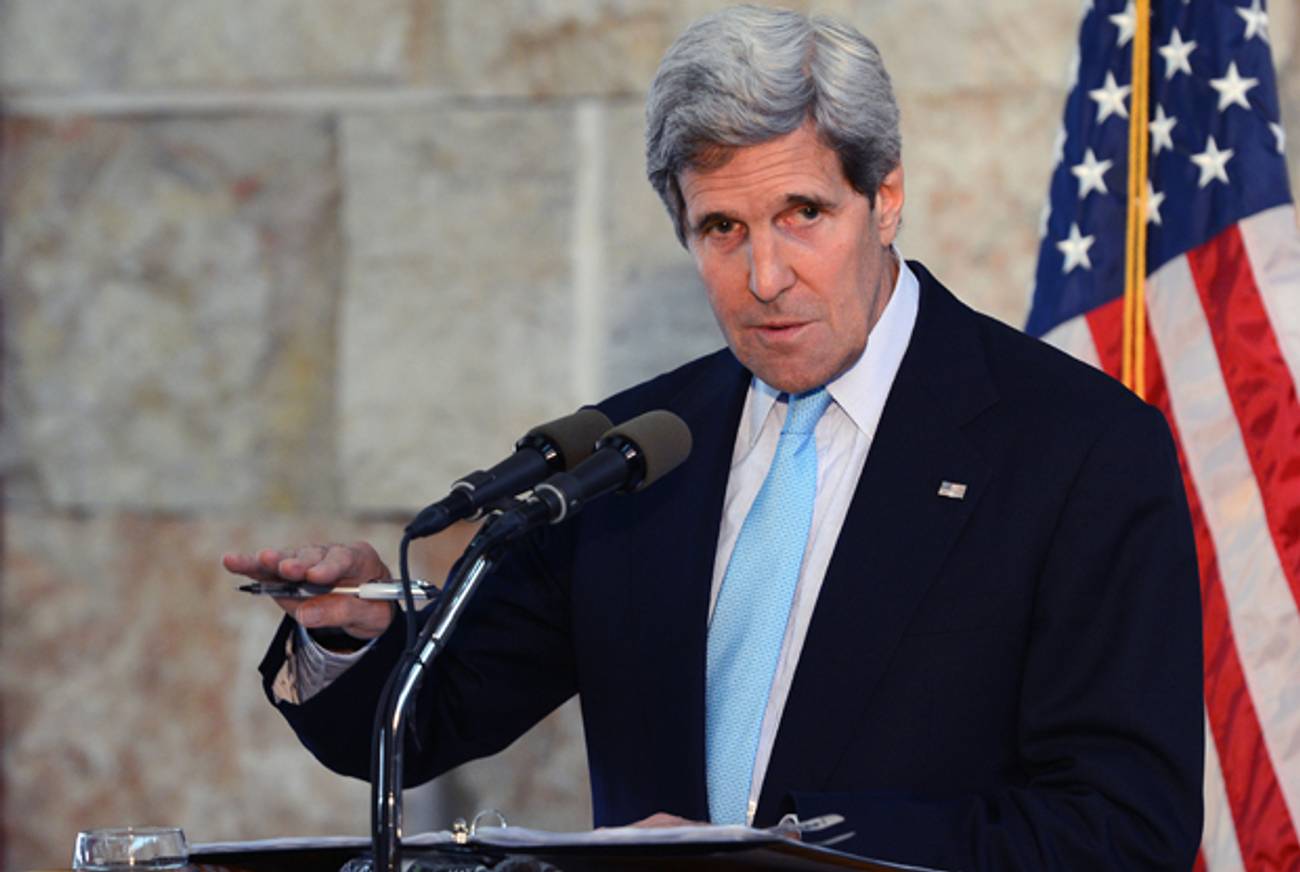Kerry Arrives in Israel to Reinvigorate Peace Talks
Unsurprisingly, the negotiations have hit some obstacles




Secretary of State John Kerry left Poland today for Israel, where he is seeking to inject a little of that Kerry magic into the Israeli-Palestinian peace talks, which are not-so-slowly disintegrating.
An absence of progress on the core issues, an ill-timed Israeli announcement of plans to build or advance 3,500 more housing units in East Jerusalem and the West Bank, and grousing by Israeli and Palestinian officials about each other’s motives are contributing to a sense that the negotiations are sputtering, like so many previous efforts to bridge the gaps between the two sides.
“He is trying to give a push,” said a senior American official, who spoke on the condition of anonymity because of the delicacy of the matter, adding that the talks were bogging down “both because of short-term irritants and slowness at getting at fundamental issues.”
Most troubling is the fact that details about the negotiations have slipped out at all. What was meant to a process held entirely in secrecy has devolved into a blame game. One report hinted that the Israeli negotiators–Tzipi Livni and Yitzhak Molcho–have appeared to be out of sync on some important points.
The two Israeli negotiators recently differed over the size of a proposed “neutral zone” in Jerusalem between Israel and a potential Palestinian state, an area which would have open access to citizens from both countries, according to the report.
Molcho reportedly sought to keep the area to an absolute minimum and contain it within East Jerusalem, while Livni expressed a more open position on the issue, which could imply the possibility that some areas of East Jerusalem could be put under Palestinian control.
This may be all for naught as reports indicated earlier this week that the United States may drop into the mix in 2014 with its own peace proposal. That’s assuming the talks haven’t fallen apart by then and a third intifada hasn’t begun.
A new poll of Palestinians in the West Bank and Gaza gave a sense of the dichotomy. The survey showed that 54 percent of Palestinians support a two-state solution, while 60 percent believe a third intifada is possible in the near future.
Adam Chandler was previously a staff writer at Tablet. His work has appeared in the New York Times, the Wall Street Journal, the Atlantic, Slate, Esquire, New York, and elsewhere. He tweets @allmychandler.